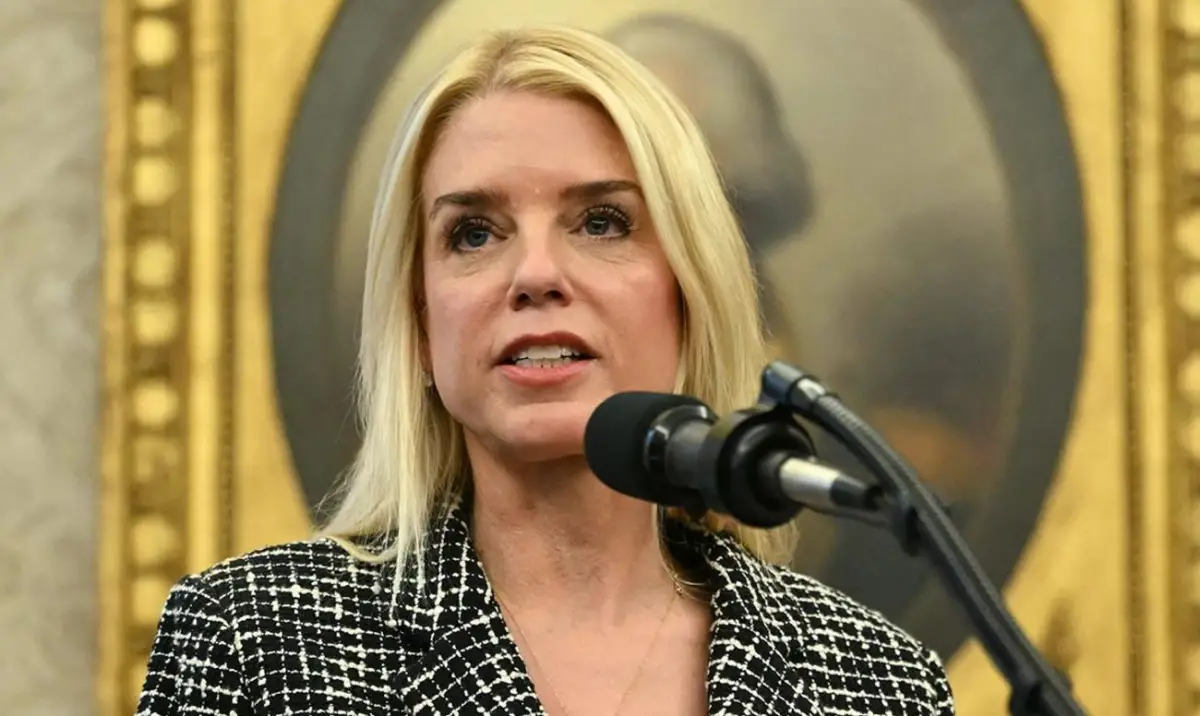Attorney General Pam Bondi Calls for Federal Judge Howell’s Recusal Over Blocked Executive Orders
In a significant legal development, the U.S. Department of Justice (DOJ) has requested that U.S. District Judge Beryl Howell recuse herself from a high-profile case involving President Donald Trump’s executive orders. The DOJ’s filing raises concerns about Judge Howell’s impartiality, claiming that her past remarks about the president suggest potential bias, especially in cases that directly challenge the president’s constitutional powers. This move has sparked an ongoing debate about judicial impartiality, the separation of powers, and the role of the courts in reviewing executive actions.
I. The Legal Challenge
The case at hand centers on a lawsuit filed by the law firm Perkins Coie, which challenges an executive order issued by President Trump. The order was intended to penalize Perkins Coie for its involvement with Fusion GPS, the firm behind the controversial Steele dossier, which played a role in the investigations into Trump’s conduct. The executive order sought to restrict the firm’s access to federal contracts and government officials. Judge Howell’s decision to block parts of the order, citing possible constitutional violations, led to the DOJ’s request for her recusal. The DOJ argues that Judge Howell’s comments and actions in previous cases, including her skepticism of Trump’s policies, could compromise the fairness of the legal proceedings.
II. Disagreement Over Judicial Impartiality
The core of the DOJ’s argument is the assertion that defendants in this case, including the Trump administration, deserve a court proceeding free from concerns of bias. In their filing, the DOJ pointed to remarks made by Judge Howell that appeared to question Trump’s ability to manage the country, as well as her characterization of the president as a potential flight risk in criminal matters. The DOJ contends that such comments undermine the judge’s ability to preside over a case involving the president’s authority without prejudice. The filing stresses that for the integrity of the legal process, cases challenging executive decisions should be adjudicated by judges who do not show personal animus toward the parties involved.
III. The Impact of Executive Orders
At the heart of the case is an executive order that targeted Perkins Coie for its involvement with the Steele dossier. The Trump administration argued that the firm’s actions undermined its policies and that punitive measures were necessary. In blocking parts of the executive order, Judge Howell raised concerns about potential violations of due process and other constitutional rights. The DOJ’s response focuses on how the court’s actions might limit the president’s ability to carry out his executive responsibilities, particularly when national security and foreign relations are at stake.
IV. Further Scrutiny of Judicial Appointments
Judge Howell is not the only judge facing scrutiny from the Trump administration. The DOJ has also sought the recusal of Chief Judge James Boasberg from a related case involving the deportation of Venezuelan nationals under the Alien Enemies Act. The Trump administration argues that Boasberg’s rulings, like Howell’s, reflect a bias against the president’s policies. Both Howell and Boasberg were appointed during the Obama administration, which has led to claims that their judicial appointments reflect a broader ideological opposition to Trump’s executive actions.
V. The Debate on Judicial Independence
The controversy surrounding Judges Howell and Boasberg raises important questions about judicial independence. Critics of the DOJ’s push for recusal argue that removing judges based on perceived bias could set a dangerous precedent, eroding the principle of an independent judiciary. Judicial impartiality is a cornerstone of the legal system, and opponents of the DOJ’s efforts warn that disqualifying judges could be seen as an attempt to undermine the checks and balances that are vital to maintaining the separation of powers.
At the same time, supporters of the DOJ’s request contend that if judges are consistently biased against the executive branch, it could lead to legal rulings that interfere with the president’s ability to execute his constitutional duties. They argue that ensuring impartiality in these cases is essential to the fairness of the judicial process.
VI. Implications for Future Legal Cases
The DOJ’s challenge to Judge Howell and Judge Boasberg could have broad implications for future cases involving the executive branch. If successful, it may lead to further efforts to disqualify judges who are perceived to be biased against executive orders. This could impact ongoing litigation in areas such as immigration, national security, and presidential authority. Legal experts note that the outcome of this case could influence how future courts approach the balance between executive authority and judicial oversight, especially in politically charged matters.
VII. Conclusion: A Defining Moment
The DOJ’s request for Judge Howell’s recusal reflects the tension between the executive and judicial branches in an era of heightened political polarization. At its core, the issue is about ensuring that legal proceedings are fair and free from bias, particularly when the cases involve actions taken by the president. As the legal community watches closely, the resolution of this case will likely shape future debates about the role of the judiciary in overseeing executive decisions and the balance of power between the branches of government. Whether the move to recuse the judges will set a new precedent for handling politically sensitive cases remains to be seen, but it underscores the ongoing importance of impartiality in the judicial process.
